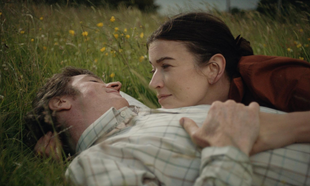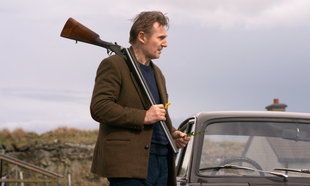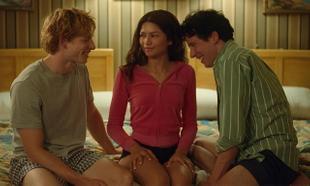Adapting Zoe Heller's novel of the same name, Closer scribe Patrick Marber dumps his usual sharp dialogue for bombastic lines that blow up in the character's faces. The big faux pas Marber makes is that he approaches the subject - cynical spinster Barbara Covett (Dench) discovers that the new art teacher Sheba Hart (Blanchett) is sleeping with her 15-year-old student (Simpson) and uses the information for her own ends - like he's the first one to ever address it. Marber could have subverted the already familiar storyline and given us something fresh, but he doesn't, and as a result his script feels like nothing more than a daring Home & Away episode. Seen through the eyes of Dench's borderline psycho, we're not allowed to get inside Blanchett: what makes her tick, why she would dump her family to sleep with a 15-year-old boy, etc? We are allowed only a glimpse into her past (a photo of her when she was a punk) but that attempt at her hidden rebellious nature feels half-assed and amateurish, and her feeble defence of the affair: "He's very mature for his age," subsequently rings hollow. Blanchett, a wonderful actress, struggles with her rigid lines and is hemmed-in by a badly drawn character that has nothing to do but worry. Simpson is never developed: he's a horny teenage boy and that's it, but he could have done with some padding, anything to show us that he has something that would make a grown woman fall for him. None of the above is Dench's fault, however. She has played sharp-tongued old ladies in her long career, but she adds a malevolence not seen before here. It's her poisonous narration that propels the film along and keeps it exiting, but Dench can only do so much before the pedestrian pacing and hackneyed scenes prove too much. Since we only learn about Blanchett's affair from Dench's diary, director Eyre employs flashbacks of the burgeoning relationship to fill in the gaps, but flashbacks lack immediacy and some tension and drama is lost when a situation is described to us rather than experiencing it firsthand. Glass's score is overused and turned up to eleven: surely the drama of a situation should be strong enough without some powerful, grandiose strings to reinforce the notion?











































































